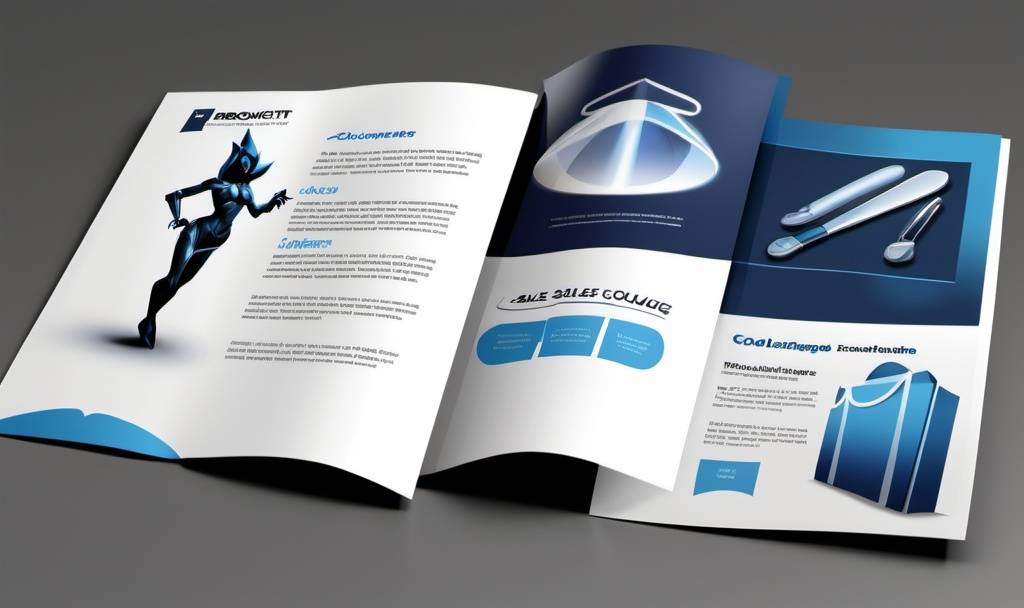Thomas Been, CMO of Domino Data Lab sat down with CXposé.tech to talk about how B2B marketing has evolved with technology, and his views on the current craze around artificial intelligence (AI).

CXposé: Thomas, can you share your thoughts on the current customer experiences in the B2B marketing landscape. Has it improved or regressed with the explosion of data and artificial intelligence (AI) solutions?
TB: I think as an industry, we have a decision to make. I think the best ones have improved, and to be polite, the worst ones have (yet) to move. And I love the fact that you bring artificial intelligence (AI) into the discussion, because you can do the easy thing to say, ‘Okay, I am going to do all of my copy with ChatGPT, and I’m going to save a lot of time’. But is that the right thing for your customer? Not quite sure, and you’ve probably shot yourself in the foot since everyone else is also doing the same.
CXposé: Can you elaborate more on what you mean by that?
TB: You’re not differentiated. If you are committed to providing value to your audience, I think it will be seen, and you get into a position where your audience is likely to keep giving you more data which gives you the opportunity to improve the experience further. And I’m going beyond marketing, and it may be true for product (development) as well.
The next big opportunity now with artificial intelligence, is that now we have the technology. We’ve had tons of data for years on the marketing side, but we really used it? Let’s be honest. We can do a bit more. Now with a bit of artificial intelligence, we can do more to understand this data in a way more efficient way. And I do think we will have opportunities to personalize in a much better way, which means leveraging data that’s available to us in agreement with the audience.
CXposé: How would personalization change with the better use of AI?
TB: Well, even as our audiences agree to give us the data, which allows us to further personalize, there’s still the hard work of making sure we understand how these AI technologies work. There are a lot of things (adoption) that will happen way faster, like automation. But I think as marketers, our job is to refine, experiment and really test out personalization that works for our customers. And if I am the customer, the experiences coming out of these trials can either be wildly successful or we may learn to be able to tell what’s done by automation and what’s not. I think at this point, we can start to recognize what’s been written by artificial intelligence. I think we will have more means to becoming better.
CXpose: For the marketers, will the acceleration of AI help them beyond removing manual tasks?
TB: The work is going to be slightly different. It’s less about setting up platforms and what not, but more on what we can experiment with? How can we use this data in a creative way? I think there’s going to be a new collaboration between AI and humans, which I think is a good scenario. But we need to take a commitment as an industry to decide that yes, experience is an area where we can differentiate the most. And we need to put in the work, then we will reap the rewards.
CXposé: With Domino Data Lab, you’re working in the space of data and analytics, where your work can actually have an impact on how AI models evolve. What do you think organizations like yours can contribute to the growth of AI?
TB: That’s an interesting question, because part of the work we do at Domino Data Lab is to help customers run their (data) models in a very responsible way. First of all, I think we improve the reputation of AI is that we take it for what it is. It is not a genie in a bottle – it’s not like we have three wishes, and hey, please do my work and make me the most successful CMO on the planet. It’s a very powerful technology, but it remains a technology.
We need to learn how to use it, and what’s interesting is there is almost a new set of skills today developed to use respective AI-tech. For example, ChatGPT, how are you going to design your prompts so that ChatGPT understands your tone, the output that your company wants to create? You need to put in the work – it’s not going to happen by magic, otherwise, you’re just doing what everyone else is doing. I think if you do this work, it’s an investment – you give and you shall receive, in terms of value-add.
CXposé What about the concerns of AI taking over marketing’s work?
TB: We need to stop thinking a lot of marketers are going to lose their jobs. I don’t think that’s true. On one hand, as I mentioned, there are new skill sets needed to use AI, and on the other hand, I think it allows us to focus on the right things. Will there be less marketers managing marketing automation platforms? Yes, that’s true. And I’m sure they will be super happy not to be setting up email campaigns all day long.
That can be done by AI. And that’s great. If we make the effort, we can get to the position where these (AI) tools will keep on getting better and they can augment us – make us better marketers. There’s a journey to get there, we need to put in the work, and we need to share the best practices. And I think we need as marketers to realize that the goalpost has moved a little bit, and we need to care more for our customers. The quality of your ad, the quality of your content is going to matter more than ever. You may write a little bit less of the content, but you need to have this critical eye, and you need to put in the effort. Focus on the important, strategic tasks at hand.
CXposé: I noticed more ChatGPT related skills now mentioned on LinkedIn, but when I spoke to industry trainers, such skills like prompt engineering doesn’t seem to be on their radar yet. Is there a disconnect between market needs and what’s actually available as resources?
TB: I think there is a disconnect but it’s not an unexpected one. It is super early. None of us could spell ChatGPT a year ago. Was anyone expecting it? Not quite. We knew there was going to be power models, but as a new user experience that popped up, no. And that doesn’t mean it’s going to be the most prevalent one. It’s like the Google search bar, we don’t have Google search engineers solely working on the Google search bar.
We see the integration in content-related tools, like Grammarly. The prompts are fairly simple, so I think that’s (prompts) are going to be common, we are going to do prompts without knowing that we are doing prompts. It will be streamlined. There’s another area to optimize the ways these tools work, and it’s similar to what we’ve done with digital marketing. We look at keywords, we look at our audiences. And this is already happening in Domino Data Lab, where we develop a series of prompts that are fully aware of the DDL context. You need to put in a lot of context, then will you get an output that is very good. And that’s the work we need to learn and do. Right now, we have very powerful and generic technologies, so the work shifts to where we need to personalize it to our context, and for our audiences. That’s how we are going to keep on differentiating.
CXposé: What are your thoughts on generative AI as the stepping stone to make AI more accessible to the general marketer?
TB: We have been using artificial intelligence a lot, but nobody knew it was artificial intelligence. Say when you use Uber, and the car is moving on the map, but it’s not the actual car but a prediction of where the car should be. And then there’s Netflix, where it sits on a treasure trove of data, because they know exactly what we’ve looked at and they use their AI models to drive what you see on your screen. So yes, artificial intelligence has been around for some time now, but we’ve never had a relationship with it like the way we do now. I think the world now has caught up with the state of AI, everybody is using ChatGPT to write emails. So yes, we’re in the right place at the right time. It’s something that everyone can tap into at a global level, but it’s also increased the stress that AI can induce in some people. I made it a topic at an all-hands meeting in my previous company, and the sentiments were half-and-half. You have half of the team who were excited and all-in, but the other half is like, “yeah, should we give it that much power?” And I don’t think it was them being afraid of losing their jobs, but they were troubled by the power that AI can have. You can like it or not, but you can’t afford to not pay attention because it is happening.
CXposé: How will measuring outcomes and successes change with hyper-personalization in the B2B landscape? Do you see more fragmentation happening when experiences are no longer “one-for-all”?
TB: I think technology will help us, because hyper personalization also happens in a context that is orchestrated. What’s going to drive hyper personalization is also hyper tracking of what works or not, in what people have in common. We have the means to look at trending or compounding by cohorts. We can translate this into data science terms, where there are dimensions or criteria that unite people, and this is where the effort is going to go. So I think the concepts remain the same. We can say that the services are going to be the same, but personalization allows customers to consume them in different ways. I’m not going to be surprised if the metrics look the same, but what’s going to change is the speed at which we get them, and the insights that come on how to achieve or how it may make an impact on these metrics.
CXposé: Thomas, thank you so much for all your insights on what AI can do for marketers and businesses. To close off, let’s make a prediction – what do you think the B2B marketing landscape will be like in 3 – 5 years time, and what will AI’s role be in that?
TB: I will give you a short prediction that I think generative AI is going to change the game for B2B marketers on two domains – the efficiency of these marketers, and the opportunity it will provide them to focus on the quality of their work, the messaging aligned, and to refocus on what’s in it for their audiences.
We’re really getting to the core of marketing, knowing that the rest of the work is going to be significantly easier. And we are only at the beginning of the story, so there’s going to be an unprecedented level of automation (underway). Overall, B2B marketing, we’ll see the acceleration of the trend of personalization, because now we have more means to do it, and with more data. And marketing is definitely on the trend of becoming even more pervasive across the (customer) experience. It’s going to be more about carving the path for your customers, then streamlining the path to where customers see value, until they buy your product/services. Additional data, increased automation from AI, and a deep understanding of your customers are going to be critical for success.




